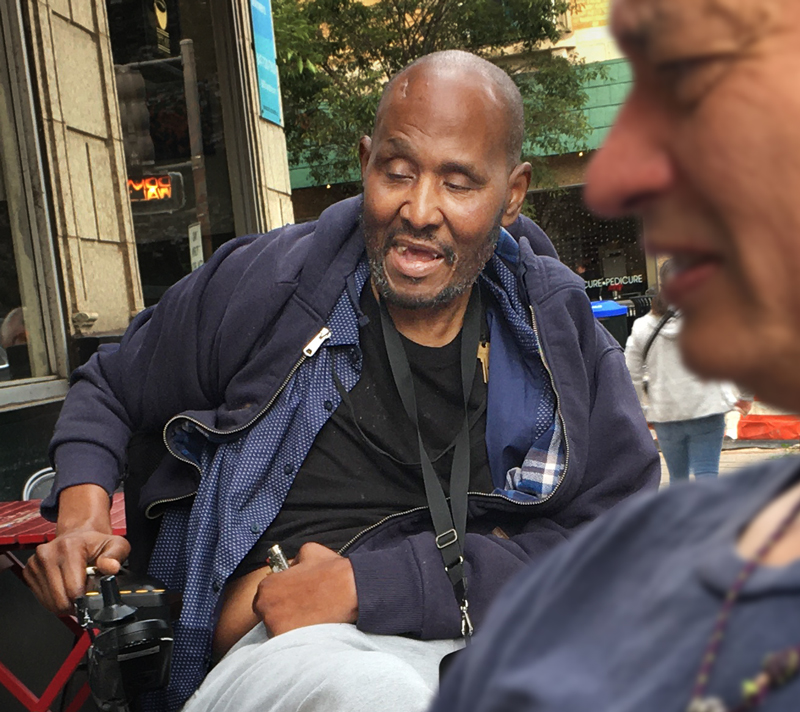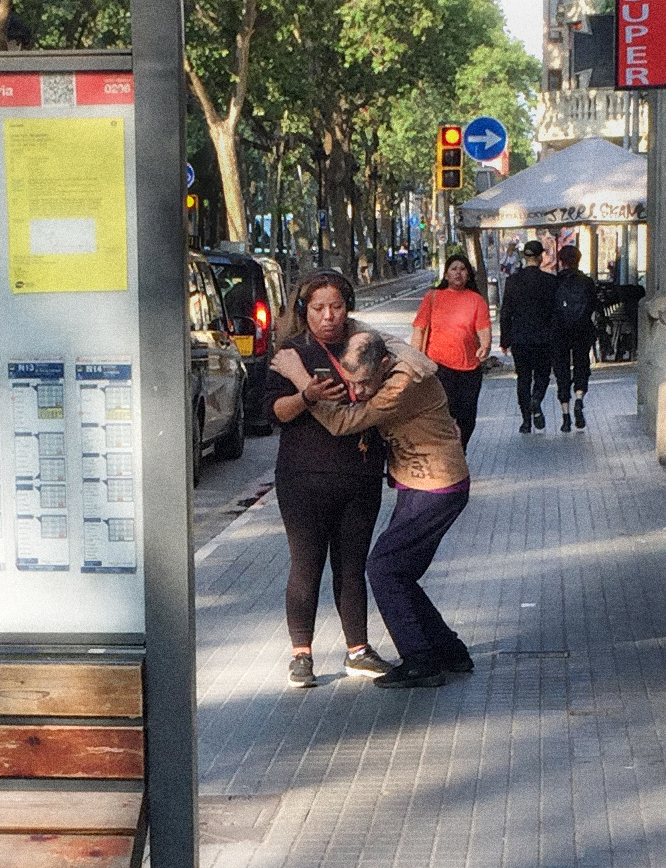Lonnie Wilson
 Who better to coach young men on male responsibility than an imperfect man who raised five daughters?One of the rewards of sitting outside at our coffee shop is that Lonnie can roll up in his wheelchair and join the conversations.
Who better to coach young men on male responsibility than an imperfect man who raised five daughters?One of the rewards of sitting outside at our coffee shop is that Lonnie can roll up in his wheelchair and join the conversations.
His life has been more interesting than most.
In no way is Lonnie making excuses for himself when he explains that narcotics became an economic driver in the neighborhood where he grew up; and how they were systemically marketed and distributed.
And he never tried to hide from the young men he was employed to coach on responsibility that he had been “strung out” during a stretch of his life. “They knew,” Lonnie says. And maybe he was better equipped to reach them about the dangers they faced because of his scars and his time on the street.
“Things are difficult for men these days,” he explains. We’re not teaching our sons the things young men need to succeed in a culture wary of them.
The expectations of fathers and breadwinners has changed, he says. Male adolescents don’t have fathers in their homes when they need encouragement most. In many families a man is considered optional.
“I’m a lucky man,” Lonnie Wilson will tell you.
He was raised by an involved father, a stepfather and two grandfathers. Their embrace of “orderliness” as an encompassing virtue stays with him to this day.
Between Tasha, Tiffany, Jasmine, Jordan and Latoya, someone is always coming by to fuss over their father. They dutifully nag about his smoking – “…really, Dad?” – so he’s laid in a ready supply of air fresheners.
Lonnie’s been wheelchair-bound for some years (heart, stroke, brain surgery, etc.) so the doorway to the coffee shop makes it all but impossible to join the winter discussions inside. But he reports making progress with a walker and he’s promised himself to be walking freely next year.
There’s a chair at the big table inside waiting for him.![]()




